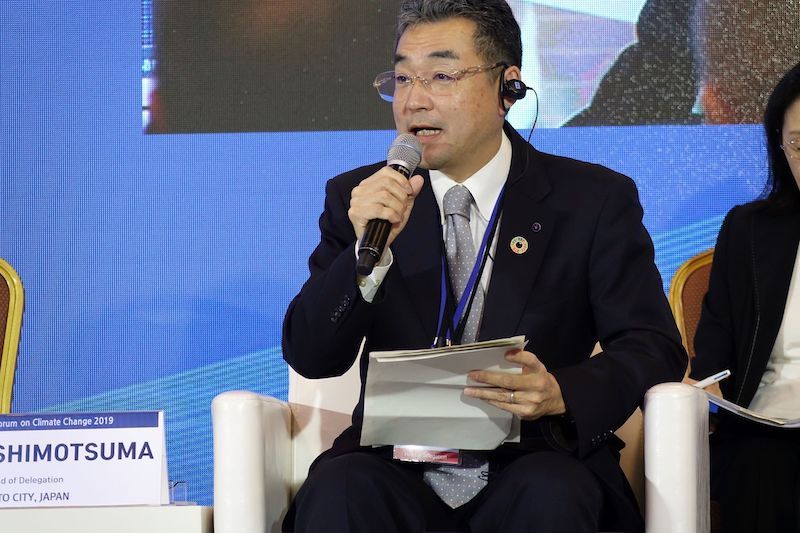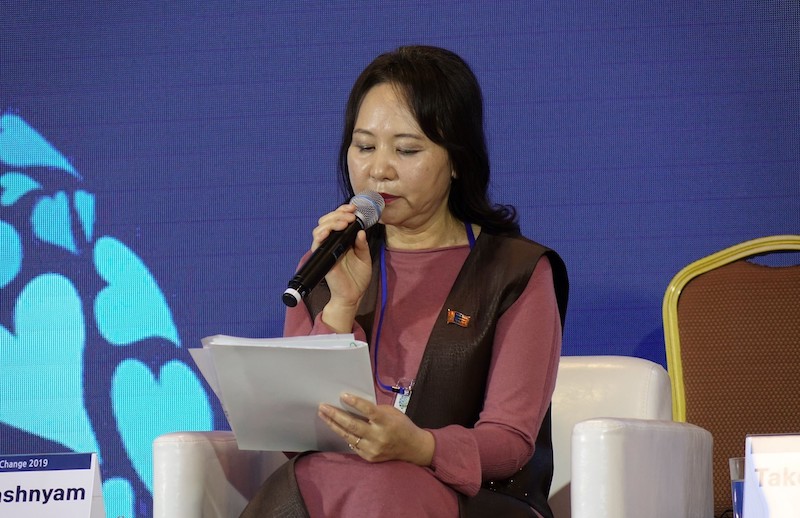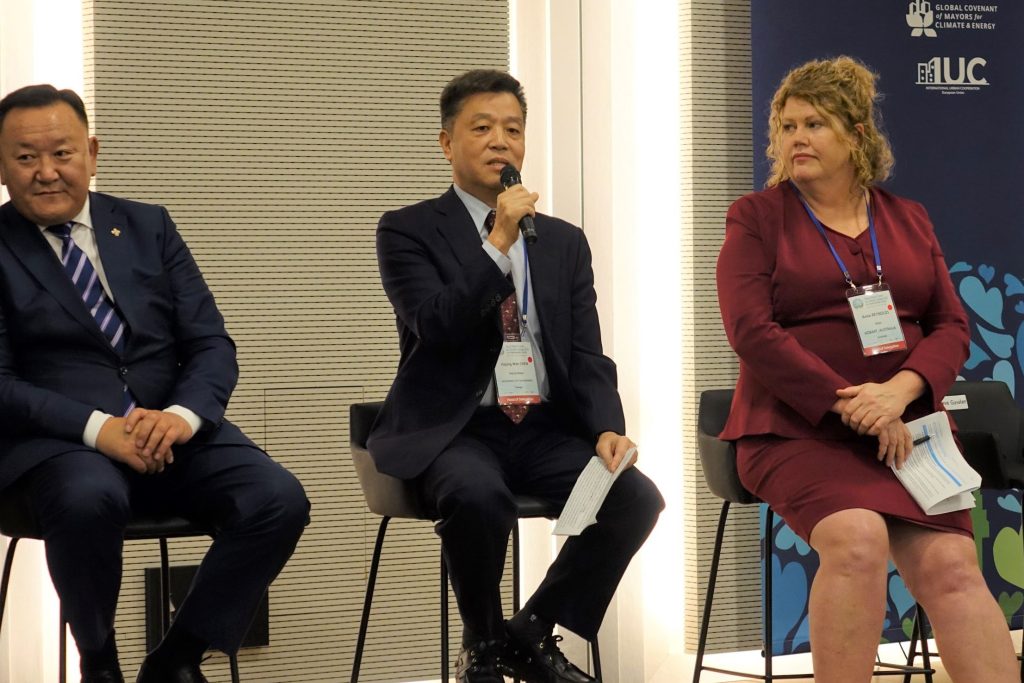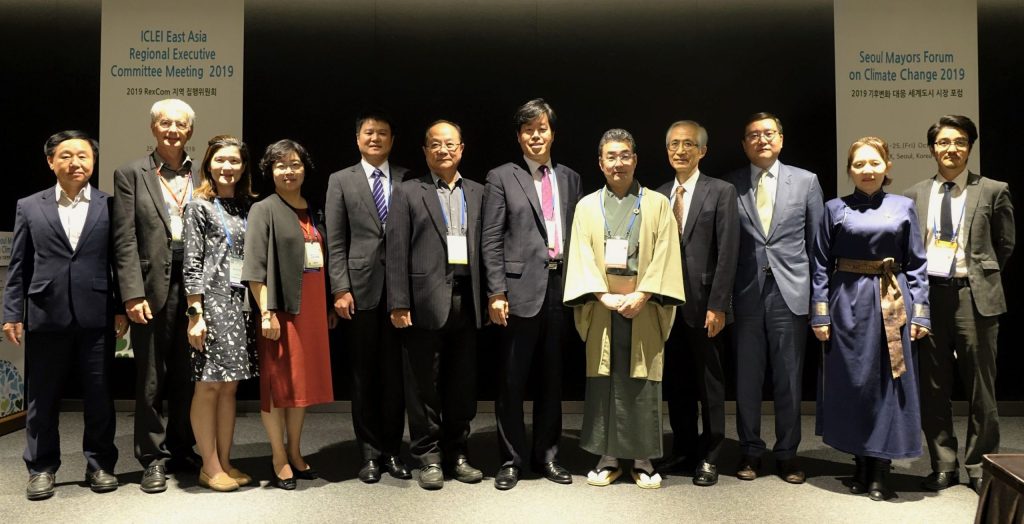ICLEI Cities in East Asia driving action at the local level
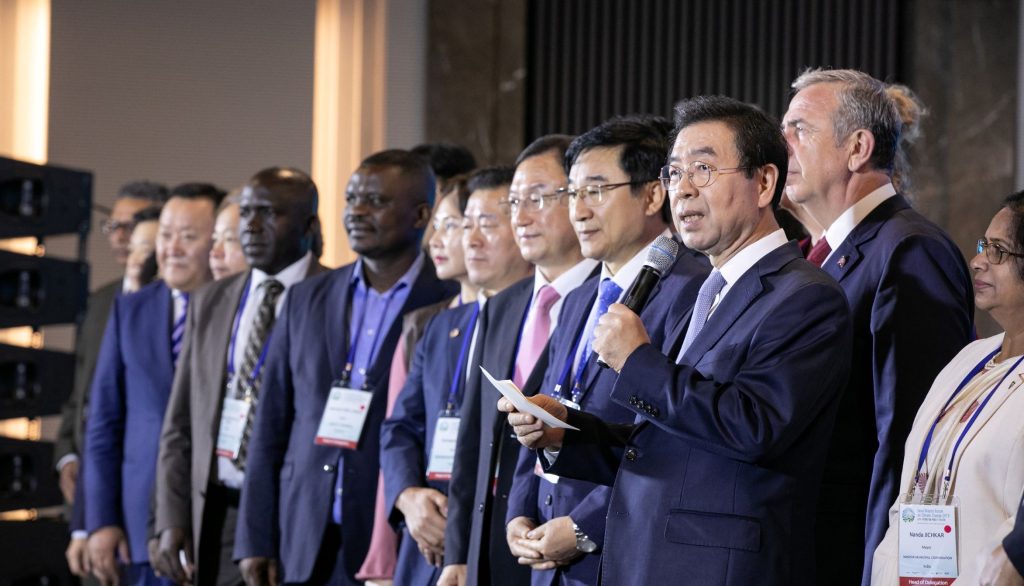
The 3rd Seoul Mayors Forum on Climate Change was successfully hosted in the Korean capital on 24-25 October, bringing together representatives of 37 cities from 25 countries, showcasing both the opportunities and challenges that cities face in tackling climate change, particularly in fast-growing urban areas across Asia.
Titled “New Era of Climate Action – Leadership and Acceleration”, this year’s event marks the 3rd Seoul Mayors Forum since its first launch in 2016. In two days of intensive engagement, cities showed their contributions to the global climate effort and exchanged their experiences and practices.
As one of the most densely populated cities in the world, Seoul, the Forum host city, is a clear leader when it comes to climate planning and policy with a diversity of initiatives and an ambitious action plan launched in 2015 that aims to reduce CO2 emission by 25 percent, or 10 million tones, by 2020.
The Forum also saw the launch of new Korean signatories to the Global Covenant for Mayors on Climate & Energy, and the release of the Seoul Statement 2019, which highlighted that, as key implementers of climate actions and first responders to climate impacts, cities, and local governments recognize that significant reductions in energy consumption and increasing renewable energy production are among the fastest and fundamental ways to address climate change, and that, more urgent and aggressive actions are necessary given the current climate crisis.
|
|
ICLEI’s Japanese member city Kyoto was invited to showcase its actions at the plenary session “Climate Neutral Cities: Local Action that Contributes to NDCs”. As the first city in Japan to enact an ordinance specifically addressing global warming, Kyoto has recently announced its commitment to achieving carbon neutrality by 2050. To pursue the goal, Kyoto has identified waste reduction as a key area of action, which could mitigate GHG emissions and improve air quality, while concurrently reducing waste treatment costs.
Represented by the Deputy Governor, the Mongolia city of Ulaanbaatar was also invited to share the city’s experiences in synergizing co-benefits of climate and energy actions during the Forum. The climate in Mongolia is strongly continental, with warm summers and extremely cold winters. In addressing climate change, Ulaanbaatar has been focusing on urban low-carbon development and recognizes the importance of energy efficiency in the building sector. In particular, with the support of GGGI and ICLEI East Asia, the city has been preliminarily shortlisted in the “Energy Performance Contracting for Residential Buildings and Retrofitting” project for a Detailed Preparation Phase earlier this year. The project is to design a financing mechanism to retrofit 1077 residential buildings in Ulaanbaatar.
Kaohsiung, another ICLEI member city, was invited to showcase its local actions regarding urban resilience and adaptation. As a harbor city with a subtropical climate, Kaohsiung is frequently hit by typhoons and suffers serious flooding resulting from torrential rain. In addressing the issue, Kaohsiung has developed wetland parks as a means to treat stormwater runoff. In addition, to lower urban greenhouse gas emissions, the city government has introduced schemes to encourage citizens to replace their old fuel motorcycles and scooters with electric ones.
|
|
|
|
Following the Forum, the 2019 ICLEI East Asia RexCom Members annual meeting was also held on 25 October, in which Gino Van Began, Secretariat General of the ICLEI World Secretariat, and Konrad Otto-Zimmermann, Founding Director and Senior Advisor of the ICLEI East Asia Secretariat, also participated. East Asia RexCom members, advisory members, and representatives of the East Asia Secretariat, the Japan Office, the Korea Office, and the Kaohsiung Capacity Center gathered on this occasion and had an intensive meeting on the development progress, strategies, and opportunities of ICLEI in East Asia.
In particular, ICLEI East Asia RexCom members and offices have been in close contact with the Ministry of Ecology and Environment of China and the Yunnan Provincial Government, with the strong support from the Secretariat of the Convention on Biological Diversity, in excavating opportunities for hosting the 7th Global Biodiversity Summit of Local and Subnational Governments, in parallel to the 15th meeting of the Conference of the Parties (COP-15) to the Convention on Biological Diversity (CBD). COP-15, which will be held in Kunming, will review the achievement and delivery of the CBD’s Strategic Plan for Biodiversity 2011-2020, and it is anticipated that the final decision on the post-2020 global biodiversity framework will also be taken.
The members have reached an agreement to foster active exchange within the region, encourage the participation of sister/partner cities in the network, expand regional projects, and extend the engagement of cities from the DPRK.
|
|



